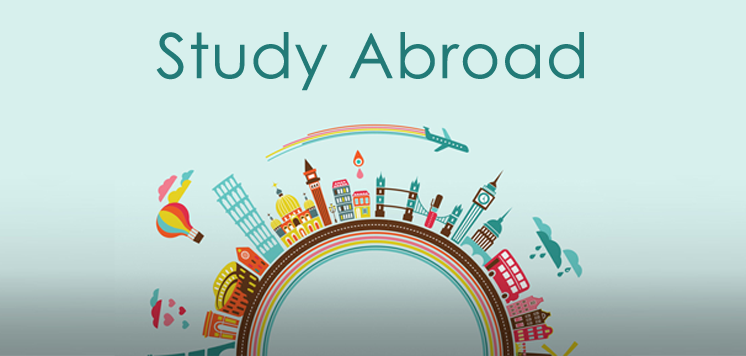When I first looked into studying abroad, the sheer number of options and the challenging task of selecting the right program overwhelmed me. The prospect of immersing myself in a new culture, acquiring foreign experience, and broadening my intellectual horizons was both exciting and daunting. After endless hours of research and great insights from those who had taken the jump, I realized that study abroad programs provide a plethora of choices that go well beyond what most websites discuss. Allow me to share with you the deep insights I discovered on my journey, as well as some convincing data to assist you in making an informed decision.
Benefits of Study Abroad Programs
#1. Enhanced Career Prospects
One of the major advantages of studying abroad is that it improves your professional prospects. According to the Institute of International Education’s report, 90% of study-abroad alumni found work within six months of their graduation. This is in stark contrast to the overall employment rate of recent college graduates, which is 49%. Employers place great importance on the talents and experiences gained through foreign education, including adaptability, problem-solving, and cross-cultural communication.
During my study abroad experience in Germany, I interned for a multinational corporation. This experience not only improved my résumé but also gave me practical skills and a global perspective that was extremely useful during job interviews.
#2. Academic Growth and Innovation
Study abroad programs frequently provide unique academic possibilities that might not be available in your own country. For example, many European institutions are known for their innovative teaching techniques and research facilities. The Erasmus Mundus program, for example, permits students to study in several countries, providing a broad and varied educational experience.
While studying in the Netherlands, I had access to cutting-edge research facilities and was able to engage with top specialists in my field. This experience greatly enhanced my academic journey and opened doors to future research opportunities.
#3. Cultural immersion and personal development
Living in a foreign place challenges you to leave your comfort zone and adjust to new surroundings. This cultural immersion promotes personal growth, resilience, and a more expansive perspective. According to the Global Education Research Reports, pupils who study abroad report a 96% rise in self-esteem and a 95% increase in maturity.
My experience in Japan was transformative. Navigating a new culture and language was difficult, but it taught me perseverance and adaptivity. I returned home with renewed confidence and a greater understanding of cultural diversity.
Discovering Top Study Abroad Programs
#1. Erasmus Mundus Joint Master’s Degree
- Duration: One to two years
This program provides grants for students pursuing combined master’s degrees at different European universities. It encourages international cooperation and mobility by enabling students to study in at least two different countries.
Unique insights:
- Diverse Academic Exposure: Studying in other nations exposes students to a variety of academic ideas and techniques.
- Networking Opportunities: Students form wide networks of peers and professionals throughout Europe.
#2. The Fulbright Foreign Student Program
- Duration: Varies per country.
The US government sponsors this program, which awards scholarships to foreign students pursuing graduate studies or research in the country. It includes tuition, living expenses, and travel expenditures.
Advertisements
Unique insights:
- Comprehensive Support: Fulbright offers substantial support, such as orientation workshops and cultural exchange programs.
- Alumni Network: Fulbright alumni include Nobel laureates, chiefs of state, and other well-known people.
#3. DAAD scholarships
- Duration: Varies by the program.
The German Academic Exchange Service (DAAD) provides a variety of scholarships for overseas students to study in Germany. These scholarships include tuition, living expenses, and transportation fees.
Unique insights:
- Research Excellence: Germany is known for its research facilities and academic rigor.
- Cultural Integration: The DAAD encourages students to immerse themselves in German culture and language.
#4. Australian Award Scholarships
- Duration: Varies by program.
The Australian government funds these scholarships, which provide full financing for students from underdeveloped nations to study in Australia. They cover tuition, living expenses, and transportation charges.
Unique insights:
- Focus on Development: The scholarships are designed to help students gain skills and knowledge that will benefit their home countries.
- Extensive Alumni Network: Scholars become part of a community of professionals dedicated to international development.
How to Select the Right Study Abroad Program
Choosing the ideal study abroad program requires careful consideration of your academic objectives, professional goals, and personal preferences. Here are some steps that will help you make an informed decision:
Advertisements
#1. Identify Your Goals
Determine what you hope to achieve during your study abroad experience. Are you seeking academic enrichment, professional advancement, cultural immersion, or personal development?
#2. Research Programs
Investigate numerous programs to see whether they are compatible with your goals. Look for programs with excellent academic standing, comprehensive support services, and opportunities for cultural immersion.
#3. Prepare your application
Gather all relevant papers, including transcripts, recommendation letters, and personal statements. Customize your application to show how the program fits with your goals and how you can contribute to it.
Costs Connected With Study Abroad Programs
Whether you enroll directly at your foreign university or through a third-party provider, there will be additional charges associated with your study abroad. You’ll need to budget for a variety of expenses, which may mount up depending on the country you’re in. When conducting your study, don’t forget to include the monthly prices of the following:
- Housing and utilities
- Local transportation
- Food and Drink
- Incidents (clothing and supplies)
- Entertainment
- Books and Materials
- Round-trip airfare.
- Passport and visa fees
In most cases, third-party providers provide lodging as part of the overall program fee.
Study Abroad Programs Costs by Area
Historically, Western Europe has been home to the most popular study-abroad destinations. Students frequently visit this portion of the world, making it known and accessible to potential study-abroad participants. However, if you venture outside of Europe, you will discover a real universe of options, many of which provide outstanding education at a reasonable cost. Let’s have a look at a few areas throughout the world to expand your options.
Each area profile will provide sample tuition expenses, cost of living averages, and estimated airplane ticket prices. These numbers are current, but they are designed to serve as a budgeting reference point. Your spending patterns will dictate how much extra money you should set aside, based on whether you prefer lavish dinners and frequent trips or cooking at home and cheap shopping.
Study Abroad Programs in Africa
Although Africa is sometimes wrongly referred to as a single destination, it is a large continent comprised of 54 countries with diverse languages, customs, and landscapes.
South Africa
South Africa is an extraordinarily diverse country with 12 official languages, including English, and there are plenty of fascinating cultural activities for prospective students. This, combined with game reserves and kilometers of coastline, makes this jewel of southern Africa an appealing vacation. South Africa has several notable international universities, including the University of Cape Town, the University of Johannesburg, and Stellenbosch University.
- The average monthly cost of living (including rent) is $900–$1,200.
- The average cost of a semester (without housing) through direct enrollment is $2,000–$4,000.
- The average cost of a semester (with housing) through a third-party provider is $15,000–19,500.
- The average cost of a roundtrip airplane ticket from New York City to Cape Town is $800-$1,300.
Ghana
Ghana is a West African country with a complicated history that may teach you as much outside of the classroom as it does inside. More than 100 ethnic groups as well as British colonial rule have an impact on Ghana’s culture. Art is extremely important, as seen by the magnificent kente cloth woven by the Asante and Ewe peoples; anyone studying textiles, pottery, or wood carving will find unlimited inspiration in Ghana.
- The average monthly cost of living (including rent) is $500–$700.
- The average cost of a semester (without housing) through direct enrollment is $2,500–$3,500.
- The average cost of a semester (with housing) through a third-party provider is $18,500–$19,850.
- The cost of a roundtrip flight from New York City to Accra is $1,200 to $1,300.
Study Abroad Programs in Asia
Asia is more than just a language-learning location. Classes in English allow students to get college credit while learning about local customs and culture outside of the classroom.
China
China, one of the world’s oldest civilizations, combines ancient history and modern innovation. Whether you’re a business student or a culture buff, there are plenty of intriguing things to discover throughout this enormous country.
- Average monthly cost of living (including rent): $850 to $1,700.
- The average cost of a semester (without housing) for direct enrollment is between $2,000 and $7,000.
- The average cost of a semester (including housing) from a third-party provider is $7,500 to $12,000.
- The average cost of a roundtrip airplane ticket from New York City to Beijing is $1,000–$1,300.
Japan
Japan has a fascinating history, healthy and tasty food, and a thriving pop culture scene that will captivate more than just Nintendo aficionados. This eclectic island has something for everyone, from art and architecture buffs to craft beer fans.
- The average monthly cost of living (including rent) is $1,300 to $2,200.
- The average cost of a semester (without housing) for direct enrollment is $1,500 to $5,000.
- The average cost of a semester (including housing) from a third-party provider is between $20,000 and $26,000.
- The average cost of a roundtrip airplane ticket from New York City to Tokyo is $1,100–$1,300.
Study Abroad Programs in Europe
Europe is by far the most popular place for study abroad students, with a diverse range of languages and cultures to suit every taste and budget. Europe, with its golden beaches, snow-capped mountains, vibrant cities, and picturesque villages, is the top study-abroad destination for a reason.
Italy
Foodies rejoice: You will be able to enjoy Italy’s rich culinary traditions while studying. A semester abroad in Italy allows you to immerse yourself in art, culture, history, and the Mediterranean lifestyle.
- The average monthly cost of living (including rent) is $1,200 to $1,700.
- The average cost of a semester (without housing) through direct enrollment is $1,500 to $6,000.
- The average cost of a semester (including housing) through a third-party provider is $17,000–$21,300.
- The average cost of a roundtrip airplane ticket from New York City to Rome is $550–$750.
Spain
Spain is typically a top study-abroad destination due to its beautiful climate and calm pace of life. This renowned destination is not just for Spanish language learners. Many programs provide English courses for individuals who simply want to enjoy the intriguing culture and rich heritage.
- The average monthly cost of living (with rent) is $1,100 to $1,500.
- The average cost of a semester (without housing) through direct enrollment is $1,500–$5,500.
- The average cost of a semester (including housing) through a third-party provider is $11,000 to $14,500.
- The average cost of a roundtrip airplane ticket from New York City to Madrid is $550-$650.
France
France is an excellent choice for French-language students and Francophiles alike. France, a country recognized for its food, wine, and cinema, has many cultural attractions to make your visit instructive and unforgettable.
- The average monthly cost of living (including rent) is $1,300 to $1,900.
- The average cost of a semester (without housing) through direct enrollment is $2,000–$7,000.
- The average cost of a semester (including housing) through a third-party provider is $12,000 to $17,000.
- The average cost of a roundtrip airplane ticket from New York City to Paris is $500–$700.
Study Abroad Programs in Central America
The seven countries of Central America are not at the top of many study-abroad rankings, but they should be. Many sites are politically stable and peaceful, making them ideal for practicing Spanish with friendly locals. From a practical standpoint, the region is close to most US states, making it an ideal first trip abroad for people who are hesitant to travel to far-flung destinations such as Asia and Oceania.
Costa Rica
The country with the tagline “Pura Vida,” or pure life, will undoubtedly soothe and invigorate you with its natural beauty and friendly residents. Costa Rica is known for its stunning beaches, wildlife-rich woods, and dynamic towns and cities. Enjoy getting to know this small Central American country while studying abroad for a semester.
- The average monthly cost of living (with rent) is $1,100 to $1,400.
- The average cost of a semester (without housing) through direct enrollment is $1,500–$3,000.
- The average cost of a semester (including accommodation) through a third-party provider is $8,500 to $11,500.
- The average cost of a roundtrip airplane ticket from New York City to San Jose is $400–$500.
Belize
This tiny Central American country, located between Mexico and Guatemala, is easy to overlook. But if you enjoy beaches, animals, and conservation studies, Belize is the ideal study-abroad choice. English is an official language that is widely spoken alongside Spanish and Belizean Creole, so you will be able to study a variety of courses in English or brush up on your Spanish abilities.
- The average monthly cost of living (including rent) is $800–$1,250.
- The average cost of a semester (without housing) through direct enrollment is $1,000–$3,000.
- The average cost of a semester (including housing) through a third-party provider is $18,000 to $23,000.
- The average cost of a roundtrip airplane ticket from New York City to Belize City is $450 to $650.
Study Abroad Programs in South America
The Amazon, the Andes, the Galapagos Islands, and Machu Picchu: South America is brimming with natural and man-made treasures. Here, you can enhance your Spanish or Portuguese or learn more about the continent’s diverse indigenous tribes.
Argentina
Argentina gave us the tango, writers such as Jorge Luis Borges, and excellent wine. Its cities, such as the capital, Buenos Aires, have a distinct European flare and provide opportunities to explore all of the country’s art and culture.
- The average monthly cost of living (including rent) is $550–$750.
- The average cost of a semester (without housing) through direct enrollment is $200 to $3,000.
- The average cost of a semester (including housing) through a third-party provider is $14,000 to $17,500.
- The average round-trip airplane ticket from New York City to Buenos Aires costs between $1,000 and $1,200.
Brazil
Brazil is a fun-loving country. The countries of Carnival, Samba, and Caipirinhas welcome students who desire to enjoy life’s basic pleasures. Brazilians are culturally diverse, yet a sense of humor runs throughout the nation. If you wish to study economic growth, environmental and marine science, or Portuguese, Brazil should be your next study-abroad destination.
- The average monthly cost of living (including rent) is 700–$950.
- The average cost of a semester (without housing) through direct enrollment is $1,000–$5,000.
- The average cost of a semester (with housing) through a third-party provider is $7,000–$19,500.
- The average cost of a roundtrip airplane ticket from New York City to Sao Paulo is $900–$1,300.
Study Abroad Programs in the Middle East
Despite recent unrest and instability in the Middle East, there are still some nations that offer reliable and high-quality study-abroad opportunities.
Jordan
Jordan has over 100,000 tourists, and religious, and archeological monuments, making it an ideal study-abroad option for history and architecture enthusiasts. Visit Petra, one of the Seven Wonders of the World, or drift aimlessly in the Dead Sea while studying ancient history, archeology, or Arabic in Jordan.
- The average monthly cost of living (including rent) is $800–$1,100.
- The average cost of a semester (excluding housing) through direct enrollment is $500–$2,000.
- The average cost of a semester (including lodging) through a third-party provider is $18,000–$20,000.
- The average cost of a roundtrip airplane ticket from New York City to Amman is $700–$1,200.
Study Abroad Programs in Oceania
Getting to Oceania requires a long flight, but the journey is worthwhile. Australia and New Zealand offer island life, as do smaller places such as Fiji, Papua New Guinea, and Tuvalu.
Australia
Those looking for plenty of opportunities to participate in outdoor sports while studying conservation and social justice will find their match in Australia. Australians lead an active lifestyle, and the country’s huge beaches and vast Outback make it easy to enjoy sports, camping, and surfing.
- The average monthly cost of living (with rent) is $1,800 to $2,900.
- The average cost of a semester (without housing) through direct enrollment is $10,000–$13,000.
- The average cost of a semester (including housing) through a third-party provider is $17,000-$23,500.
- The average cost of a roundtrip airplane ticket from New York City to Sydney is $1,300–$1,900.
New Zealand
According to a public poll, New Zealand is Australia’s best friend in the world, and they have a sibling rivalry with its western neighbor. Although smaller than Australia, New Zealand has a breathtaking landscape, from its pristine shores to its towering highlands. Students who enjoy the outdoors will find a suitable home away from home in New Zealand.
- Average monthly cost of living (including rent): $1,650 to $2,050.
- The average cost of a semester (without housing) through direct enrollment is $8,000 to $12,500.
- The average cost of a semester (including housing) through a third-party provider is $15,500 to $21,000.
- The average cost of a roundtrip airplane ticket from New York City to Christchurch is $1,950–$2,100.
Studying Abroad for Free: Is It Possible?
Believe it or not, various countries around the world provide free postsecondary education to their residents. So, what about the international students? Can they also profit from a free university? Surprisingly, the answer is yes—with a few limitations.
- Fees: While the degree program itself may be free, students must still pay fees. However, compared to the expense of a bachelor’s or master’s program in the United States, you will save significantly.
- Enrollment: To take advantage of overseas colleges’ reduced tuition, students must enroll directly rather than through a third-party source.
- Language: Countries with free universities for overseas students do not speak English as a first language. While many more colleges now offer master’s degrees entirely in English, you may have difficulty locating full bachelor’s degrees. However, if you only plan to take one semester of classes, you should have fewer problems.
Study Abroad Programs Funding
If the costs of studying abroad seem overwhelming, keep in mind that your financial aid can be used to cover expenses other than tuition and fees. There are also numerous study-abroad scholarships and fellowships to apply for in 2024.
Nedchi enjoys connecting students with these options. Details are available in the following articles on our website:
- Top International Study Scholarships In 2024-2025 (+ Application Tips)
- BEST COUNTRIES TO STUDY MEDICINE IN 2024-2025
- Top Fully Funded International Scholarships for Nigerian Students In 2024-2025
Conclusion
Studying abroad is a life-changing experience that provides numerous benefits, ranging from improved professional possibilities to personal development. By carefully selecting a program that corresponds with your objectives and completing a solid application, you can embark on an educational journey that will have a long-term influence.
What are the most important variables impacting your study abroad decision? Share your thoughts, and let’s continue the conversation!
References
Advertisements






